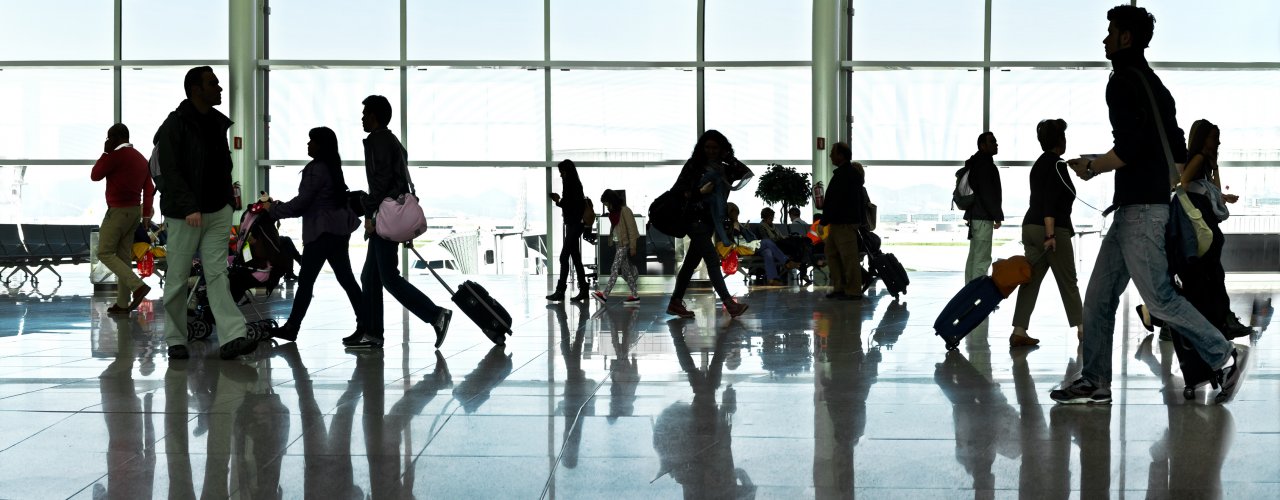While you are abroad, emergencies may arise. While they can be stressful and even frightening, emergencies are easier to handle when you know where to turn for help.
In the Event of Medical Emergency
1. Seek Immediate Care: The traveler should go to the nearest clinic or hospital.
2. Call International SOS (ISOS): Cornell's medical insurance/assistance provider, at their 24/7 emergency assistance line: +1-215-942-8478 (or use the mobile app).
When you call:
- Provide traveler's name, policy number (11BSCA827281), and any details requested.
- ISOS will:
- Monitor your case
- Confirm if local care is adequate.
- Arrange direct payment to the facility when possible.
- If direct payment isn't possible:
- Pay upfront and keep all receipts for reimbursement.
3. Notify your program: Students studying abroad should notify their program/resident director as soon as possible.
4. Contact Cornell IHSS: Once you're safe and stable (intlsafety@cornell.edu)
What if I need to call for the police, fire truck, or ambulance?
Not all countries have a central emergency dispatch you can call for help. However, they may have dedicated country-wide numbers for police, fire, and ambulance. Here is a list of local "911" equivalents around the world.
What do I do if I am injured or sick (non-life threatening) while I am abroad?
Follow these emergency procedures if you are injured or sick:
How do I find a reputable doctor abroad?
How do I access mental health counseling while I'm abroad?
If you need mental health assistance, call ISOS at +1-215-942-8478—or use the mobile app—and reference your membership number: 11BSCA827281. Cornell's membership includes up to five free virtual emotional support sessions (phone/video call) with mental health professionals, per incident. Also, your travel medical insurance includes emergency (non-routine) mental health benefits.
I was just involved in a motor vehicle accident. What do I do?
If you are injured, follow emergency procedures and contact ISOS and IHSS.
Whether you are injured or not, do the following:
I had a motor vehicle accident while on Cornell business. What do I need to do?
Should I call the local police if I am a crime victim?
Yes, if it safe to do so, contact the local police to report the incident and get immediate help. Request a copy of the police report. Consult the list of local “911” equivalents around the world.
I had documents stolen. Who do I turn to for help?
How can I get information about local laws?
Can the U.S. Embassy help me if I am a crime victim?
Yes, if you are a U.S. citizen. Consular officers at U.S. Embassies and Consulates around the world are available for emergency assistance 24 hours/day, 7 days/week and can connect you with the appropriate local authorities.
U.S. citizens can also contact the U.S. Department of State directly from overseas by calling +1-202-501-4444 for help with emergency needs that arise as a result of being a victim of a crime.
Non-U.S. citizens should reach out to their own Embassies and Consulates.
I have just been sexually assaulted. What is the first thing I should do?
Should I contact local police if I have been sexually assaulted?
As a sexual assault victim, you are also the victim of a crime. See the “Victim of a Crime” section for information on how to contact the police and other authorities in-country. Be aware that in some countries, local authorities may not be as helpful or understanding as you might expect in the United States, and in a few countries, it may not be advisable to report the incident to local authorities at all. ISOS can help navigate local laws and customs if there is any question on what the best course of action may be.
Where can I get information on local culture and attitudes toward sexual assault?
If you are a U.S. citizen and have questions about the local culture and attitudes toward sexual assault, contact the U.S. Department of State from overseas by calling +1-202-501-4444. You can also contact ISOS for similar advice.
Where can I get more information and support as a victim of sexual assault?
I was sexually assaulted or the victim of a sex or gender-based offense. Do I have to report it?
We encourage you to report the incident to U.S. state or federal authorities (if you are comfortable doing so and are a U.S. citizen) and to the Cornell Title IX Coordinator in the Office of Institutional Equity and Title IX. The Title IX Coordinator can assist you in accessing resources and thinking through your different rights and options in the aftermath of your experience. There are a number of ways to make a report. including reporting to Cornell's Title IX office.
If you are a student, be aware that only those staff and faculty who are designated reporters are required to share information with the Title IX Coordinator. All other staff and faculty are encouraged, but not required, to do so if they become aware of a report of dating violence, stalking, sexual assault, sexual harassment, or related misconduct.
I am a faculty or staff member, and a student told me about an alleged sexual assault. What are my obligations and responsibilities?
If you are a designated reporter, you have a duty to consult with the Title IX Coordinator if you learn of a report of sexual assault, dating violence, stalking, or sexual harassment involving a student. Additionally, if you are a Cornell supervisor or manager, you have a duty to report when you learn of sexual harassment in the workplace. Report what you know, including the names of those involved, to the Cornell Title IX Coordinator in the Office of Institutional Equity and Title IX.
Sometimes cultural differences may make it hard to understand the scope of the experience being reported. In this case, you should still share information about what was reported to you with the Title IX Coordinator. The coordinator will confidentially reach out to the reporter and offer information about their different rights, options, and resources in the wake of their difficult experience.
What should I do if there is in-country violence or a natural disaster?
Will U.S. authorities contact me about the dangerous political/social/environmental situation?
If you are a U.S. citizen enrolled through the Smart Traveler Enrollment Program (STEP), the U.S. Department of State (DoS) will notify you, initially by email, of the situation and advise you about what to do.
If you are a non-U.S. citizen, you can also sign up to receive travel alerts and advisories from the DoS by email, but you will not have access to the same emergency services. We advise you to check with your own embassy for similar programs.
ISOS will also send alerts and advice, via email and the mobile app, to you as a registered traveler when an event may have a negative impact on your itinerary.
Will Cornell help me if my in-country situation becomes dangerous?
IHSS may attempt to notify you, verify your well-being, and arrange for needed (and ISOS-recommended) transport as a benefit of having registered your Cornell-related travel with the International Travel Registry. Sometimes, the safest option in a dangerous environment is to shelter in place until transport is available and safe. Remember, registering Cornell-related international travel is mandatory for all students, staff, and faculty.
Also, let IHSS know if you are OK or if you need assistance by calling ISOS at +1-215-942-8478, or via intlsafety@cornell.edu or through the online international incident report form.
How do I let Cornell know that a Cornell traveler has gone missing?
Who should I notify in-country that a Cornell traveler has gone missing?
If safe to do so, notify the local police and file a missing person report. If applicable, notify the host institution/organization as well. They can often help navigate the local authorities and processes.
Also, notify the nearest Embassy or Consulate of the person’s citizenship. Here is a list of U.S. Embassies and Consulates around the world.
Note that the U.S. Consular officers will reach out to hospitals and law enforcement agencies to see if U.S. citizens were admitted or arrested but cannot divulge their findings without the written permission of the missing person.
Just need help and don't know what to do? Contact ISOS for assistance at +1-215-942-8478—or use the mobile app—and reference membership number 11BSCA827281.
If you have concerns or experienced a non-emergency incident abroad, please use the Guardian self-reporting tool to make a report. For emergencies or matters that need immediate attention abroad, please contact your local 911 equivalent for police, fire, and ambulance.


